Problem 1 Why does a non-quasi-equilibrium compression process require a larger work input than the corresponding quasi-equilibrium one? Problem 2 What are the four processes that make up the Carnot cycle?
Problem 1 Why does a non-quasi-equilibrium compression process require a larger work input than the corresponding quasi-equilibrium one? Problem 2 What are the four processes that make up the Carnot cycle?
Materials Science And Engineering Properties
1st Edition
ISBN:9781111988609
Author:Charles Gilmore
Publisher:Charles Gilmore
Chapter10: Oxidation, Degradation, Corrosion, Electroprocessing, Batteries, And Fuel Cells
Section: Chapter Questions
Problem 10.1P
Related questions
Question
Help solve both for my homework please!

Transcribed Image Text:Problem 1
Why does a non-quasi-equilibrium compression process require a larger work input than the corresponding
quasi-equilibrium one?
Problem 2
What are the four processes that make up the Carnot cycle?
Expert Solution
This question has been solved!
Explore an expertly crafted, step-by-step solution for a thorough understanding of key concepts.
Step by step
Solved in 2 steps

Recommended textbooks for you
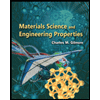
Materials Science And Engineering Properties
Civil Engineering
ISBN:
9781111988609
Author:
Charles Gilmore
Publisher:
Cengage Learning
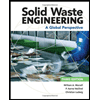
Solid Waste Engineering
Civil Engineering
ISBN:
9781305635203
Author:
Worrell, William A.
Publisher:
Cengage Learning,
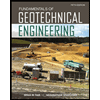
Fundamentals of Geotechnical Engineering (MindTap…
Civil Engineering
ISBN:
9781305635180
Author:
Braja M. Das, Nagaratnam Sivakugan
Publisher:
Cengage Learning

Materials Science And Engineering Properties
Civil Engineering
ISBN:
9781111988609
Author:
Charles Gilmore
Publisher:
Cengage Learning

Solid Waste Engineering
Civil Engineering
ISBN:
9781305635203
Author:
Worrell, William A.
Publisher:
Cengage Learning,

Fundamentals of Geotechnical Engineering (MindTap…
Civil Engineering
ISBN:
9781305635180
Author:
Braja M. Das, Nagaratnam Sivakugan
Publisher:
Cengage Learning
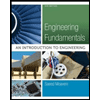
Engineering Fundamentals: An Introduction to Engi…
Civil Engineering
ISBN:
9781305084766
Author:
Saeed Moaveni
Publisher:
Cengage Learning
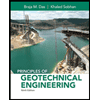
Principles of Geotechnical Engineering (MindTap C…
Civil Engineering
ISBN:
9781305970939
Author:
Braja M. Das, Khaled Sobhan
Publisher:
Cengage Learning
